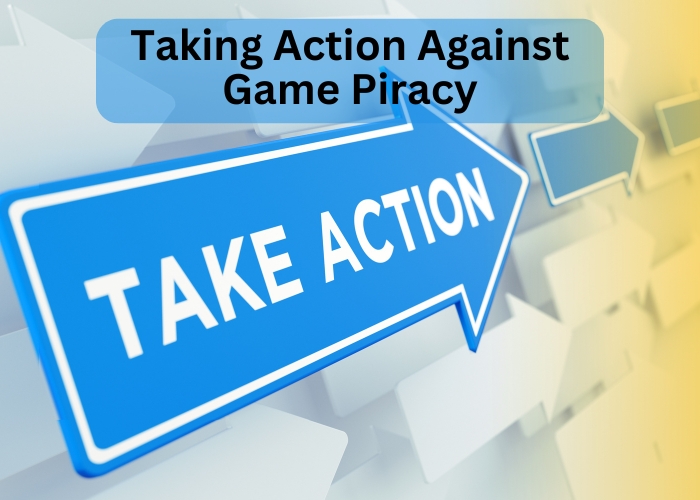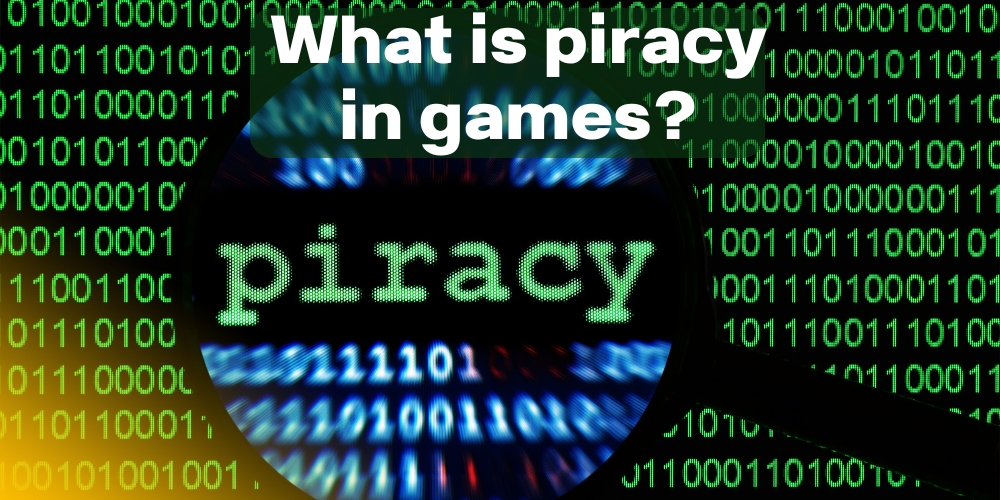Video game piracy, the unauthorised copying and distribution of video games, is a topic that often stirs up heated debates among gamers, developers, and legal experts alike. This blog will delve into the murky waters of video game piracy and its consequences. We’ll explore what constitutes piracy in the gaming world, how it affects the industry, and most importantly, the punishments that await those engaging in this illegal activity.
From legal repercussions to the impact on a gamer’s reputation and access to future games, we aim to shed light on the often misunderstood and overlooked aspects of video game piracy punishment.
What is Game Piracy, and Why Does It Matter?
With the release of new games every year that lure players in with captivating plots, eye-catching visuals, and addictive gameplay mechanics, gaming has become a popular pastime and a significant cultural phenomenon. However, gaming has a darker side, known as game piracy, which is the illegal use and distribution of copyrighted games by individuals without the consent of publishers or developers.
The Development of Video Game Piracy
Physical Theft:
Physical copies were primarily used in video game piracy throughout its early stages. Unauthorized markets were selling counterfeit discs, tapes, and cartridges. The industry faced significant challenges because it took a lot of work to discern these pirated copies from authentic ones.
Digital Theft:
The development of the internet caused piracy to move online. Users can obtain pirated games more easily through torrent websites, file-sharing services, and direct download links. This type of piracy is more challenging to regulate because of the internet’s vastness and anonymity.
Contemporary Techniques:
Today’s pirates are more skilled at their craft. Hackers develop “cracks” to get around DRM restrictions, allowing them to play video games without authorization. Moreover, pirated copies of games that were initially created for different platforms can be played on modified consoles and emulators.
Effects of Piracy in Video Games

Video game piracy has a wide range of effects, impacting the gaming business, customers, and the overall economy. Here are some prominent places where its effects are felt:
Publishers and Developers’ Revenue Losses:
The money made by game developers is drastically reduced by piracy. Publishers and developers lose out on possible revenue when players download games illegally.
This loss in revenue can limit the resources available for future game production, resulting in fewer, lower-quality games or possibly driving smaller companies to close down.
Adverse Effect on Employment
Programming and marketing are only two of the many careers available in the gaming business, making it a significant employer. The livelihoods of those employed in the industry may be impacted by job losses and fewer opportunities brought on by decreased income due to piracy.
Impact on Originality and Ingenuity:
Piracy’s financial burden has the potential to impede innovation. Instead of taking innovative chances that can result in ground-breaking new games, developers may feel pressured to stick to tried-and-true game concepts to maintain sales.
Consumer Price Increases:
Companies may decide to raise the price of their games to make up for losses resulting from piracy. This impacts legitimate customers since they must pay extra for their gaming experiences.
Users’ Security Risks:
Malware and other dangerous software are frequently present in pirated games. Installing and downloading these games puts users in danger of computer security, which could result in data loss, theft, or other cyber threats.
Problems with Support and Quality:
It is typical for pirated games not to receive official patches, updates, or customer service. Gamers who use pirated versions frequently experience more glitches and a less polished game.
Pirates’ LegalPirates’ssions:
If pirating is detected, a person may be subject to fines and, in certain situations, jail time. The impact of piracy is further compounded negatively by this legal risk.
Economic Repercussions:
The impact of piracy extends to the broader economy. The gaming industry’s contributions due to revenue loss have the potential to negatively impact the local economies in which these businesses are located.
Taking Action Against Game Piracy

DRM, or digital rights management:
The purpose of DRM systems is to stop the illegal distribution and copying of digital content. They can be controversial even though they can be successful because too restrictive DRM can irritate legitimate users.
Legal Reaction:
Video game publishers frequently file lawsuits against people and organisations distributing unlicensed games. Although the effectiveness varies depending on jurisdiction and enforcement capabilities, this can serve as a deterrence.
Knowledge and Consciousness:
Piracy can be decreased by informing customers about the adverse effects of it and emphasising the advantages of supporting developers with legitimate purchases. Campaigns to raise awareness can emphasise how piracy damages the gaming industry and degrades the gaming experience in general.
Creative Models of Distribution:
Legitimate access to games can be more tempting through subscription services, free-to-play models with in-game purchases, and regular specials. These devices can lessen the temptation to play pirate games by providing value and ease.
Causes of the Increase in Game Piracy
The need for more excellent education and public knowledge about the effects of game piracy on the gaming industry is one of the leading causes of the expansion of game piracy. Many people think they are doing everything right and should be informed of the implications of downloading unlicensed games. Many players opt to download pirated versions of games to save money on the expensive price of buying the actual games. The ease with which people may download and share games thanks to high-speed internet connections is another factor contributing to the rise in game piracy.
Sharing unlicensed games with others has become simpler with the emergence of peer-to-peer networks. Groups engaged in “cracking” video games “also support game piracy.
In short
One issue that has a detrimental effect on the gaming industry is game piracy. The development, inventiveness, and growth of the game business have been hampered by piracy, which has cost creators money. Moreover, gamers and game producers are at risk of security breaches due to game piracy. By acquiring authentic game copies, we, as players, should support the video game industry and its creators. When we pirate games, we should admit that it hurts the industry we love.
As a result, players need to unite to stop piracy and safeguard the sector’s future. Let’s be fair and support gaming. Let’s make one purchase at a time.

